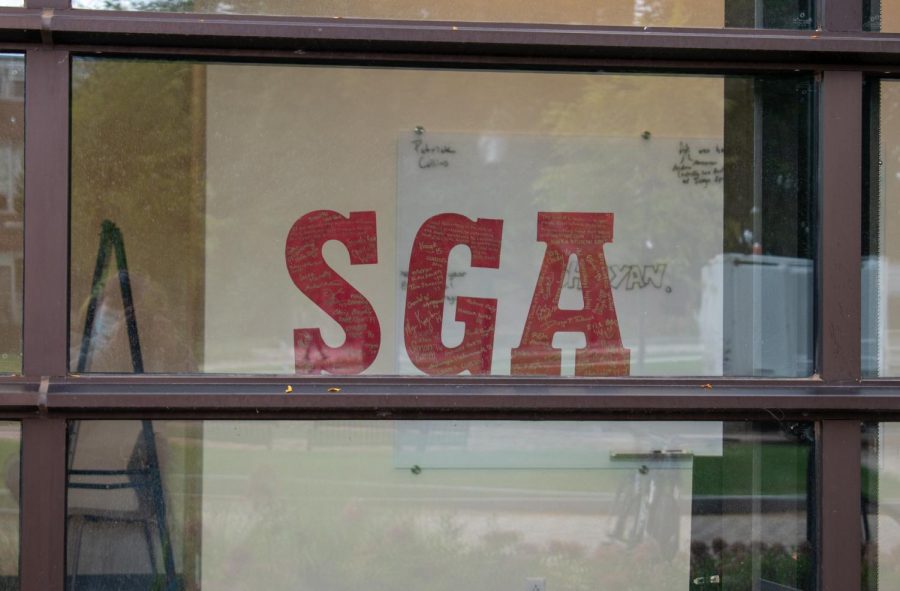The University of Massachusetts Amherst Student Government Association met on Wednesday night to discuss five referendums that will appear on the SGA spring election ballot.
The election will feature two types of questions: action referendums and advisory referendums. In an action referendum, students vote yes or no to a proposed initiative and the University carries out the majority response. Advisory referendums do not lead to action but measure student feedback on a proposed initiative.
“They serve as survey questions in a lot of ways,” SGA President Patrick Collins said. “Allowing the SGA to know how to best govern, to best represent the student body.”
Collins took the senate floor to explain how the referendum works, sharing three advisory referendums appearing on the ballot. The first question asks whether UMass should cancel classes on presidential and midterm election dates. The second question considers if students should have the capabilities of having a UCard on their mobile device. The third question polls students on whether the University should repeal its mask mandate.
“It’s not necessarily pushing one side or the other,” Collins said. “If there’s ever a point where we’re in a meeting with administrators, and we’re asked how does the student body feel about this […] we can specifically point to this metric.”
Senators also unanimously voted to include a new action referendum on the ballot, moving to ask the student body whether they approve of potential amendments to the SGA constitution. Attorney General Hayden Latimer-Ireland shared these amendments with the Senate, noting the constitution has not changed since 2006. “These are things that will make us function better,” Latimer-Ireland said.
One amendment will officially instate the position of Vice President, which the previous constitution did not include. Another amendment establishes a clear line of succession from the President to Vice President to Speaker to Associate Speaker in case one of these positions becomes vacant.
The new constitution also adjusts the span of the President and Vice President’s terms to end at the final SGA meeting of the year.
“The way it works right now, the president leaves office on April 1,” Latimer-Ireland explained. “There’s a month where really big administrative decisions are being made where there’s a lack of consistency.”
With this amendment, the election time frame will remain consistent, but the newly elected administration will not begin their term until the end of the academic year. If passed, this term length adjustment will go into effect during the 2022-23 academic year.
Senators also voted to add a referendum from MassPIRG onto the ballot in a 21-14 vote. This question will poll students on whether to maintain the UMass MassPIRG chapter through a waivable $11 student fee.
Chair of the UMass MASSPIRG chapter Jarret Taylor reported that the organization collected 3,000 student signatures to make it onto the election ballot, receiving 1,900 more signatures than the 1,100 requirement. The agency requested the SGA approve the MassPIRG action referendum to bypass the process of authenticating these signatures.
“They got all their signatures,” Speaker Julia Curto said. “The reason they’re putting this up is so that the Elections Commission does not have to count 1,100 signatures.”
Chair of the Finance Subcommittee Ian Harvey was one of 14 senators to oppose this measure.
“My main concern is I feel that we’re giving a bit of special treatment to MASSPIRG if we were to support this motion,” Harvey explained. “If this passes, what’s to stop the senate from having to approve any ballot referendum?”
Curto encouraged senators to remind their constituents to read the referendums that will appear on the election ballot. “We are pushing this election more than we ever have,” Curto said.
Voting for the SGA Spring Election opens on March 1 at 12 a.m. and closes March 4 at 5 p.m.
Sophie Hauck can be reached at [email protected].



















